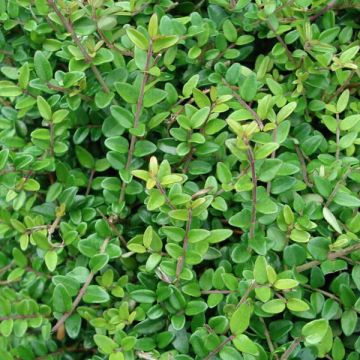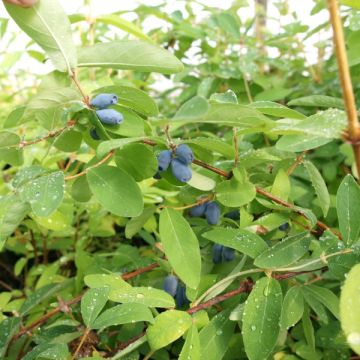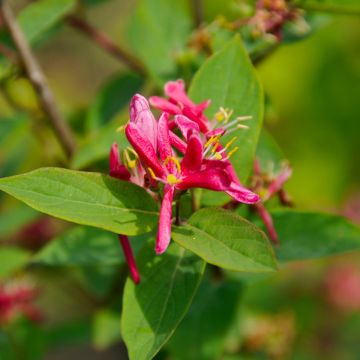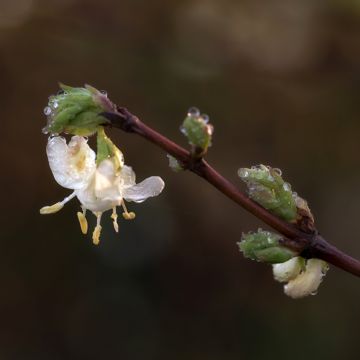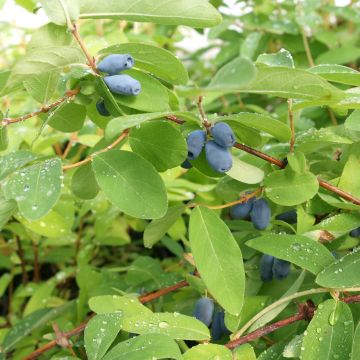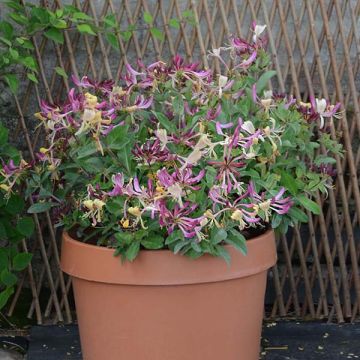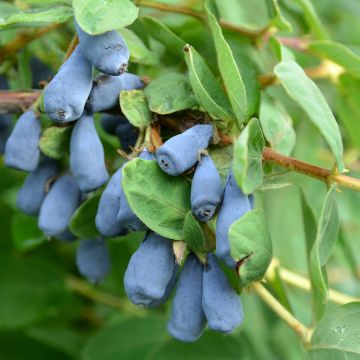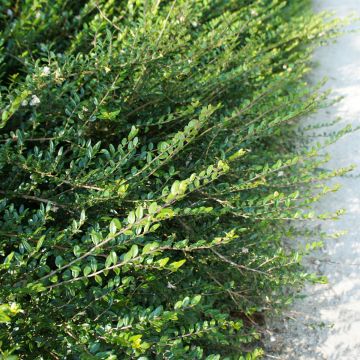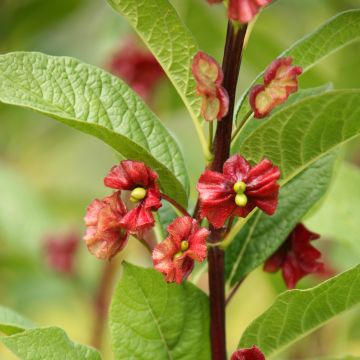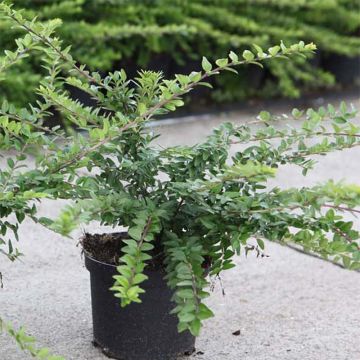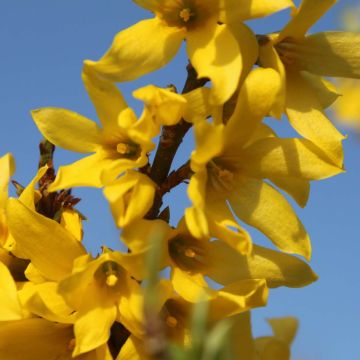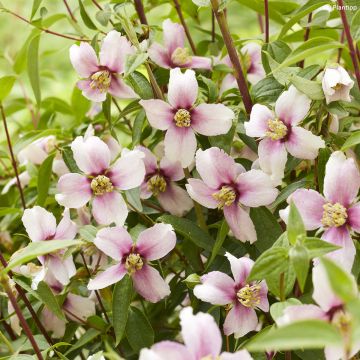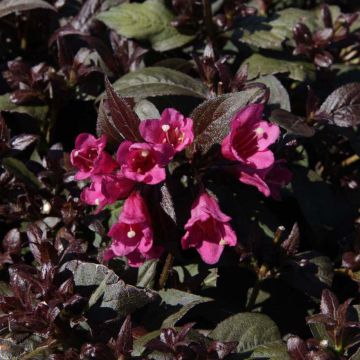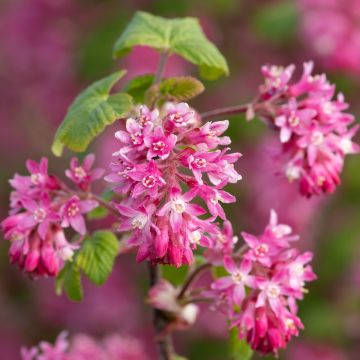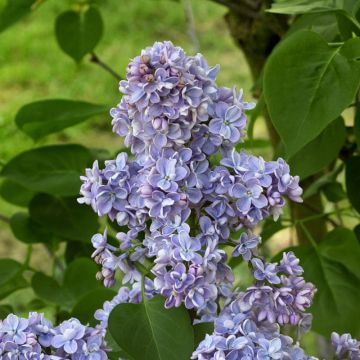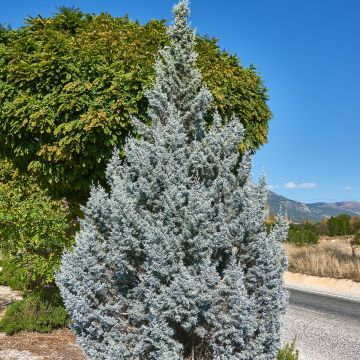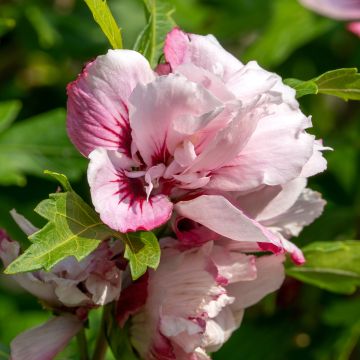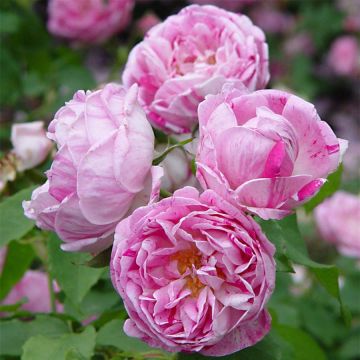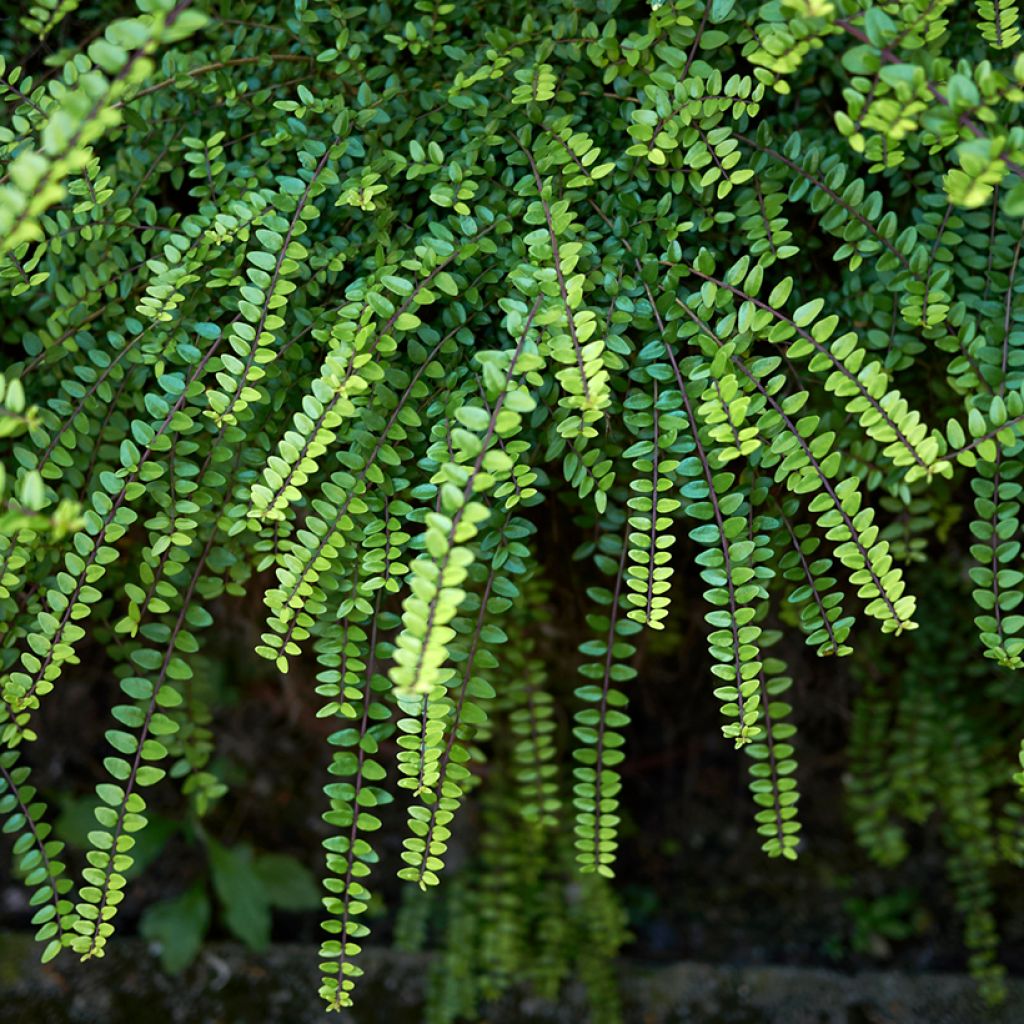

Lonicera nitida Ernest Wilson - Box Honeysuckle
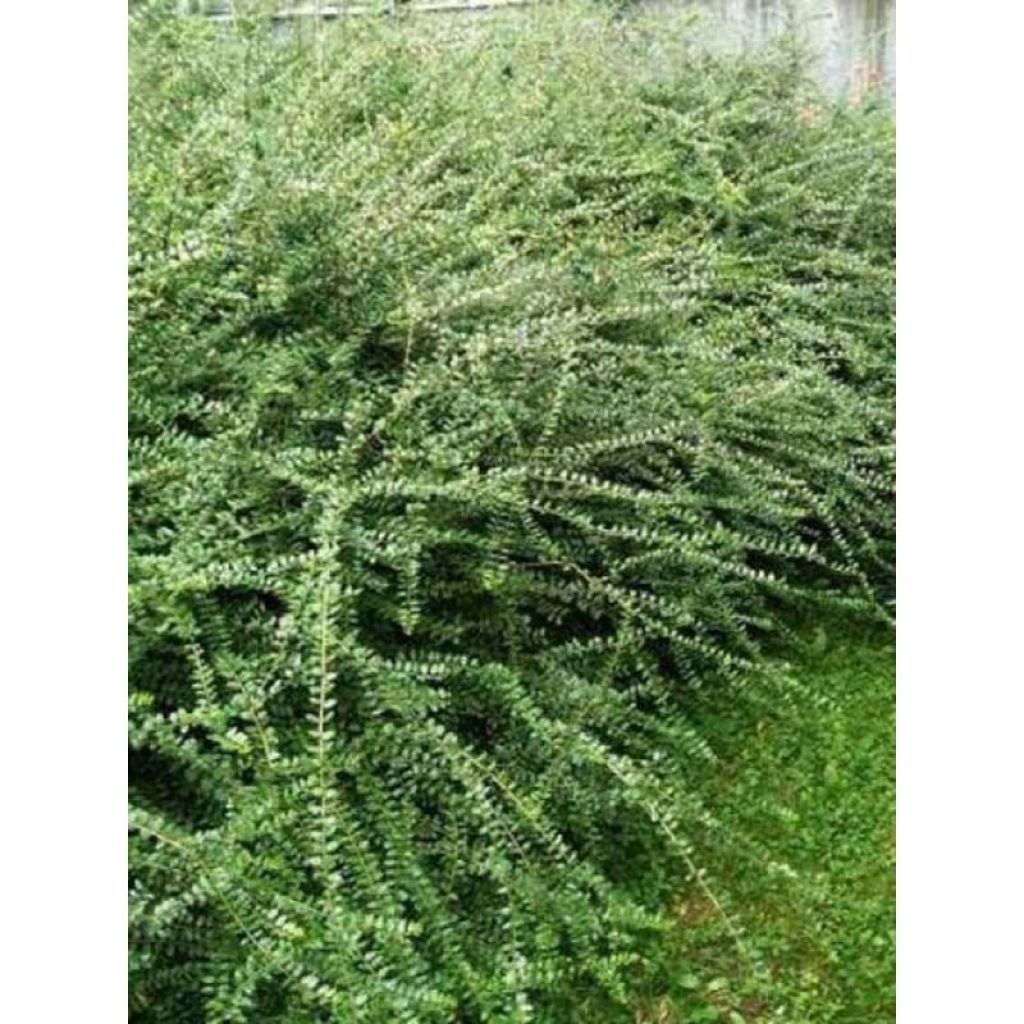

Lonicera nitida Ernest Wilson - Box Honeysuckle
Lonicera nitida Ernest Wilson - Box Honeysuckle
Lonicera nitida Ernest Wilson
Box Honeysuckle, Wilson's Honeysuckle, Boxwood Honeysuckle, Boxleaf Honeysuckle
Arrived much larger than I expected... I hope this time they survive my dogs ^^
Mimil-e, 19/09/2025
Special offer!
Receive a €20 voucher for any order over €90 (excluding delivery costs, credit notes, and plastic-free options)!
1- Add your favorite plants to your cart.
2- Once you have reached €90, confirm your order (you can even choose the delivery date!).
3- As soon as your order is shipped, you will receive an email containing your voucher code, valid for 3 months (90 days).
Your voucher is unique and can only be used once, for any order with a minimum value of €20, excluding delivery costs.
Can be combined with other current offers, non-divisible and non-refundable.
Home or relay delivery (depending on size and destination)
Schedule delivery date,
and select date in basket
This plant carries a 24 months recovery warranty
More information
We guarantee the quality of our plants for a full growing cycle, and will replace at our expense any plant that fails to recover under normal climatic and planting conditions.
Would this plant suit my garden?
Set up your Plantfit profile →
Description
The Lonicera nitida 'Ernest Wilson' is a vigorous variety with evergreen leaves much smaller than those of other varieties, of a shiny dark green colour. It forms a medium-sized bushy shrub that grows quickly even in shade, in slightly poor and dry soil. Tolerant to pruning, it is an excellent plant for forming topiaries or trimmed hedges, replacing boxwood advantageously. Its free form is also elegant with its numerous long, arched and ramified branches, like a green fireworks display! Use it to create an easy hedge or as ground cover to stabilize a slope. Its spring flowering is inconspicuous, but it emits a pleasant fragrance and is followed by purple berries, appreciated by birds.
The Lonicera nitida 'Ernest Wilson' is a hybrid of shrubby honeysuckle also called boxleaf honeysuckle, belonging to the caprifoliaceae family. Its parent, L. nitida, is a robust evergreen shrub native to the Chinese provinces of Yunnan and Sichuan.
The variety 'Ernest Wilson' is very easy to grow and hardy. It reaches an average height of 1.50 m (4 ft 11 in) and a width of 1.2 m (3 ft 11 in). Its growth is fast, requiring several prunings per year depending on its growing conditions. The 'Ernest Wilson' shrubby honeysuckle has a bushy habit, carried by arched and ramified branches. Its evergreen, small and tough, shiny dark green leaves are only 4 to 6 mm (0.2 to 0.2 in) long. If not pruned, it develops small cream-white flowers, quite inconspicuous, but pleasantly scented in spring. The small purple fruits, toxic but appreciated by birds, are rarely observed in cultivation and obviously only develop if the plant is not pruned.
Plant Lonicera nitida 'Ernest Wilson' in any well-drained soil that is not too dry, even chalky, it appreciates partial shade or light sun. Primarily a foliage plant, the boxleaf honeysuckle tolerates severe pruning, which should be done just after winter or after flowering. Allow 50 to 70 cm (19.7 to 27.6 in) of distance between plants for subjects planted in hedges. This shrub is resistant to atmospheric pollution and also tolerates moderate drought once established. It allows for the creation of low hedges, large borders, ground cover for a large slope, or the creation of beautiful plant sculptures, trimmed into balls or pyramids, both in the ground and in pots. This boxleaf honeysuckle can also be left free in the undergrowth, you can also train it against a trellis.
Report an error about the product description
Lonicera nitida Ernest Wilson - Box Honeysuckle in pictures


Plant habit
Flowering
Foliage
Botanical data
Lonicera
nitida
Ernest Wilson
Caprifoliaceae
Box Honeysuckle, Wilson's Honeysuckle, Boxwood Honeysuckle, Boxleaf Honeysuckle
Cultivar or hybrid
Other Honeysuckle
View all →Planting and care
Plant the Lonicera nitida 'Ernest Wilson' in a firm but well-drained, deep and not too dry soil, even limestone, in partial shade or light sun. The plant also grows in shade, but its foliage will be less colourful there. Leave 50 to 70 cm (19.7 to 27.6 in) of space between the plants for subjects planted in a hedge. To keep it regular and compact, prune your hedge once or twice a year. The Lonicera nitida is resistant to air pollution and can also tolerate moderate drought once established.
Planting period
Intended location
Care
-
, onOrder confirmed
Reply from on Promesse de fleurs
Similar products
Haven't found what you were looking for?
Hardiness is the lowest winter temperature a plant can endure without suffering serious damage or even dying. However, hardiness is affected by location (a sheltered area, such as a patio), protection (winter cover) and soil type (hardiness is improved by well-drained soil).

Photo Sharing Terms & Conditions
In order to encourage gardeners to interact and share their experiences, Promesse de fleurs offers various media enabling content to be uploaded onto its Site - in particular via the ‘Photo sharing’ module.
The User agrees to refrain from:
- Posting any content that is illegal, prejudicial, insulting, racist, inciteful to hatred, revisionist, contrary to public decency, that infringes on privacy or on the privacy rights of third parties, in particular the publicity rights of persons and goods, intellectual property rights, or the right to privacy.
- Submitting content on behalf of a third party;
- Impersonate the identity of a third party and/or publish any personal information about a third party;
In general, the User undertakes to refrain from any unethical behaviour.
All Content (in particular text, comments, files, images, photos, videos, creative works, etc.), which may be subject to property or intellectual property rights, image or other private rights, shall remain the property of the User, subject to the limited rights granted by the terms of the licence granted by Promesse de fleurs as stated below. Users are at liberty to publish or not to publish such Content on the Site, notably via the ‘Photo Sharing’ facility, and accept that this Content shall be made public and freely accessible, notably on the Internet.
Users further acknowledge, undertake to have ,and guarantee that they hold all necessary rights and permissions to publish such material on the Site, in particular with regard to the legislation in force pertaining to any privacy, property, intellectual property, image, or contractual rights, or rights of any other nature. By publishing such Content on the Site, Users acknowledge accepting full liability as publishers of the Content within the meaning of the law, and grant Promesse de fleurs, free of charge, an inclusive, worldwide licence for the said Content for the entire duration of its publication, including all reproduction, representation, up/downloading, displaying, performing, transmission, and storage rights.
Users also grant permission for their name to be linked to the Content and accept that this link may not always be made available.
By engaging in posting material, Users consent to their Content becoming automatically accessible on the Internet, in particular on other sites and/or blogs and/or web pages of the Promesse de fleurs site, including in particular social pages and the Promesse de fleurs catalogue.
Users may secure the removal of entrusted content free of charge by issuing a simple request via our contact form.
The flowering period indicated on our website applies to countries and regions located in USDA zone 8 (France, the United Kingdom, Ireland, the Netherlands, etc.)
It will vary according to where you live:
- In zones 9 to 10 (Italy, Spain, Greece, etc.), flowering will occur about 2 to 4 weeks earlier.
- In zones 6 to 7 (Germany, Poland, Slovenia, and lower mountainous regions), flowering will be delayed by 2 to 3 weeks.
- In zone 5 (Central Europe, Scandinavia), blooming will be delayed by 3 to 5 weeks.
In temperate climates, pruning of spring-flowering shrubs (forsythia, spireas, etc.) should be done just after flowering.
Pruning of summer-flowering shrubs (Indian Lilac, Perovskia, etc.) can be done in winter or spring.
In cold regions as well as with frost-sensitive plants, avoid pruning too early when severe frosts may still occur.
The planting period indicated on our website applies to countries and regions located in USDA zone 8 (France, United Kingdom, Ireland, Netherlands).
It will vary according to where you live:
- In Mediterranean zones (Marseille, Madrid, Milan, etc.), autumn and winter are the best planting periods.
- In continental zones (Strasbourg, Munich, Vienna, etc.), delay planting by 2 to 3 weeks in spring and bring it forward by 2 to 4 weeks in autumn.
- In mountainous regions (the Alps, Pyrenees, Carpathians, etc.), it is best to plant in late spring (May-June) or late summer (August-September).
The harvesting period indicated on our website applies to countries and regions in USDA zone 8 (France, England, Ireland, the Netherlands).
In colder areas (Scandinavia, Poland, Austria...) fruit and vegetable harvests are likely to be delayed by 3-4 weeks.
In warmer areas (Italy, Spain, Greece, etc.), harvesting will probably take place earlier, depending on weather conditions.
The sowing periods indicated on our website apply to countries and regions within USDA Zone 8 (France, UK, Ireland, Netherlands).
In colder areas (Scandinavia, Poland, Austria...), delay any outdoor sowing by 3-4 weeks, or sow under glass.
In warmer climes (Italy, Spain, Greece, etc.), bring outdoor sowing forward by a few weeks.






























